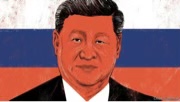|
didn't the nazi military industry make these complicated tanks and vehicles that broke down quickly and couldn't be repaired while the soviets just churned out boxes with wheels/tank treads which worked in anything for a bit more time than their nazi counterparts so what I'm saying is that looking at the F-35 I think we can safely presume which course the US would take even if it did somehow by a literal loving miracle manage to instate a war economy
|
|
|
|

|
| # ? May 23, 2024 18:15 |
A Russian troll farm posted:fascist america would make the abrams 3, which weigs 300 tons and has a railgun that fires rounds that cost a million dollars each Sounds pretty much like what's going on already lol
|
|
|
|
|
Hasn't Biden raised taxes recently?Vahakyla posted:These two vehicles do different things though. And this doesn't fit 9 dudes, either. The GWOT-poisoned brain thinks that every military vehicle has to be armored to the gills, when in reality a large number of conventional vehicles are meant to be unarmored. The Tigr can fit up to 13 depending on layout. Slavvy posted:The absolute best they'd be able to do is conscription for the front + slave labour for industry aka the Nazi Germany model, which as we all know was famously successful IDK, the nazis probably wouldn't have had a chance at winning even if they went full fordism. USSR + USA is just too much land, natural resources and people. They had a surprising amount of military success given their situation.
|
|
|
|
Smythe posted:u know where they make steel? Got curious so I looked it up. They produced 5x more steel in 1910.
|
|
|
|
Doktor Avalanche posted:didn't the nazi military industry make these complicated tanks and vehicles that broke down quickly and couldn't be repaired while the soviets just churned out boxes with wheels/tank treads which worked in anything for a bit more time than their nazi counterparts the Panther tank had a good chance of stripping the teeth off every gear in the transmission and permanently immobilizing itself if the driver shifted into third gear too vigorously, and you had to dismantle almost the entire tank to get in there and fix the drat thing
|
|
|
|
The only way Nazis could have won is that they don't divert resources and manpower to holocaust and treat slavic peoples as humans so instead of partisans they can recruit more manpower. But then they wouldn't be Nazis.
|
|
|
|
Bar Ran Dun posted:there is still a great deal of industrial capacity, but it doesn’t really employ a lot of folks. it does very much still exist however. yeah? i don't know about this stuff at all but dod sounds shook beyond hamming it up for budget. these issues aren't going away, but what do I know? maybe you do though. Securing Defense-Critical Supply Chains - Feb 2022 (pdf). quote:The Military Services have experienced casting and forging capability and capacity challenges that can be attributed in part to the impacts of offshoring and waves of industry consolidation since the mid- 20th century. For example, the United States has only one foundry that can produce the large titanium castings required for some key systems. The Army has also identified shortfalls in production and heat treatment of specialty alloys that are mission critical. The Navy has documented C&F capacity and quality issues affecting many facets of shipbuilding. The Air Force has identified needs for the ability to cast single crystal turbine blades and large thin-wall titanium components, an additional source for an extrusion press used for powder nickel super alloy billets, and downstream post-processing capacities and capabilities—including heat treating, coating, hole drilling, machining, and hot isostatic pressing to help eliminate unwanted voids and provide increased strength in cast products. Although some suppliers have updated equipment over time in an attempt to meet the Services’ needs, many commercial and OIB C&F plants have aging equipment or are limited by existing facilities, infrastructure, and, for commercial firms, state and federal operating permits. quote:The nearly 30 million small businesses in the United States account for over 40 percent of U.S. quote:Diminished Domestic Manufacturing Capacity
|
|
|
|
as far as i can tell the standard fascist assumption is that they'll win the inevitable war through willpower and fighting spirit, and as such they don't tend to care too much about the actual war economy
|
|
|
|
I mean whos gonna manage this hypothetical american war acconomie? Wokes will be executed presumably. Epic bacon cowboy hat wearing MBAs whose only suggestion for running a business is cut labor costs before the next quarterly report?
|
|
|
|
Fish of hemp posted:The only way Nazis could have won is that they
|
|
|
|
Tankbuster posted:I mean whos gonna manage this hypothetical american war acconomie? Wokes will be executed presumably. Epic bacon cowboy hat wearing MBAs whose only suggestion for running a business is cut labor costs before the next quarterly report? this is a silly reduction but fundamentally sound america has industrial capacity, in the general sense it also has one of the strongest domestic arms industries on paper and a large pool of manpower what it absolutely lacks and none of the nascent fascists could magick into being is the ability to seize relevant private property, centralize and reorganize production around material inputs or the vast bureaucracy to manage it all and direct it to function they hate all of those things deeply!
|
|
|
|
Tankbuster posted:I mean whos gonna manage this hypothetical american war acconomie? Wokes will be executed presumably. Epic bacon cowboy hat wearing MBAs whose only suggestion for running a business is cut labor costs before the next quarterly report? i will
|
|
|
|
Bar Ran Dun posted:oh I get that you think it’s impossible. I'm kind of new to this poo poo, but I would really recommend Wages of Destruction. The Nazi economy was based around private industry first and relied on what the oligarchs wanted. It wasn't anything like the US economy where FDR would knock heads with the hard headed oligarchs to get them to treat labour relatively fairly or Canada where consumer manufacturing was converted into military manufacturing. Also Speer kinda, well, significantly exaggerated his effectiveness. ETA: also to use a previous example, known working designs (e.g. the P3) get replaced with more expensive, less effective designs (the P8) or have the tooling decomissioned when it isn't profitable (the F22). Add the point about all the FDR types who at least believed in a State being pretty much gone and... Isentropy has issued a correction as of 11:33 on Mar 17, 2023 |
|
|
|
skooma512 posted:No one will sign up to fight for the oligarchs, but that's fine because they'll be conscripted anyway. The Russian model from the current war may be what we see, after all what use is having the most prisoners in the world and a society purpose built to make more if you're not going to enslave all of them? Conscript armies are more closely linked to popular participation in politics (and thus economics) because going to war is a political act. This is literally the foundation of conscription in the west. I mean, the entire notion of Citizen-Soldiers, from the French Republic on. You go to war for the state because you are directly involved in the state, there is a common purpose, welfare etc. It's why, for example, the CSA conscription system basically collapsed into desertion by 1863: The Slaveholder's Republic was not one where poor whites felt they had political control of the distribution of resources or direction of the war, so they voted with their feet. The Southern aristocracy massively over-participated in the military, which ours are sure to do the opposite of, and that still was not enough. A conscript, even more than a volunteer, can simply vote with their feet. They can defy the state, bring the state to its knees, even lead to the defeat of the state, if the state does not provide them with a degree of citizenship commensurate with the sacrifices being demanded of soldiers. The CSA set up the first centrally administered welfare state in American history, despite being essentially founded on the principle of resisting central government, to administer pensions and other benefits to Soldier's Wives (capitals because this was considered an emerging and powerful political identity in the CSA). A half century before American women got the vote, women in the South were writing officials at all levels of government with petitions, that the state felt they must respond to, because if they did not adequately meet the needs of Soldier's Wives, it was understood they would simply leave and go home to do so. This is without going into the many, many other examples in the 19th century. In antiquity, literally what separated democratic from oligarchic states was that the common people participated in the militaries of democratic states but could not be induced into serving oligarchs. Where the oligarchs tried, they quickly faced either revolution, because they had just armed a vast body of people who were now making political demands, or to varying degrees dissolved their oligarchy to keep those men in the field and prosecute the war. There was no way for oligarchs to retain a system where power and resources were controlled by a small group but arms were borne by a large one. The reason that these came and went thoughtout the centuries, where we see oligarchic and feudal societies with a warrior elite, was that military technology allowed the participation by a small group of elite to have an outsized military effect. Now, as with the CSA, it bears repeating that the cost of this for Bronze Age charioteers, for medieval knights, Edo Samurai, Manchu Bannermen, was that they all had to participate in the military. Cavalry, worldwide, gave aristocracies a way to limit political and military participation to a few, because in many battles a handful of armoured knights would be killed to hundreds of footmen/ The population was not required to be under arms, was not armed to the same standard and so could not directly contest the political system violently. However, it also required cradle to grave military service by that elite, and they developed social practices that reinforced that, as well as providing a buffer to social conflict. Noblesse oblige, chivalry, bushido (not as imagined in Meiji Japan, but I digress), basically "nobility" as a social practice. This is so alien to our ruling class, who have a view of the world in terms of financial transactions rather than social bonds, as to be comical. I mean, half the reason we think these things are silly and outdated is that it's incomprehensible that our ruling class would A) form the bulk of our military and B) owe us social obligations in a way intrinsically tied to their social position. Kinship, honour, nobility, all of these things served the very useful purpose of having the peasants continue to work for the ruling class without giving them political power. Power no longer had to be conceded to them because of military necessity, but peasants could always vote with their feet. As easy as it is for a conscript to make their political agency felt through non-participation, it's about a million times easier for a farmer. Where do we see the emergence of Early Modern or at the very least Non-Feudal states? Where military forces, by some quirk of geography mostly, could not be the nobility on horseback. The Netherlands, which was a bog, Switzerland, for obvious reasons, northern Italy, the highlands of Scotland and Wales. These had “citizen” armies of pikemen (and bowmen 🏴) which could remain on the field against the knights of other states. A bit of a chicken or egg thing, but their geography also meant that, besides not being able to provide knights for their own defence and so requiring mass participation in war and politics, (the thesis of this post is that they are the same thing), resisting the installation of a foreign nobility by their military organization being able to resist it, their own nobility could not impose themselves on the population. Both because they needed them to keep other states out, and because one noble with a pike will lose to 100 peasants also with pikes, where 1 knight on horseback could fight 100 peasants elsewhere in Europe. Because of that, they were socially organized differently. This also happened outside of Europe but I don't possess a universal knowledge of military history. In West Africa there were 19th Century knights, with the resulting same sort of social organization in their societies because of geography and military technology. In other parts of Africa, societies were, egalitarian is not the right word, but tribal kingship was contingent on popular will. Woodland Indians similarly. Even when muskets came, the tribes that were the best at war, and so survived and expanded, were the most "democratic". The Iroquois Confederacy, because they put the most able bodied men in the field, was the most successful, for a time the dominant military power in upper North America (exceeding the Europeans, mind), so those men were all involved in the political direction of their society. Which is a very long explanation for why our idiot failson soft handed, soft bodied ruling class of MBAs cannot force us to go to war, particularly one they do not fight in themselves, because they need us to fight it, which means they need to give us things. Being idiot fail sons, they may not realize it, but nevertheless can't even coerce us if push comes to shove because, quite literally, them and what army? e: “Fascism” and war. There are many good books on this from the past 20 years. I blame Hannah Arendt for this, but basically Fascism still promised people things. Which group of people was of course selective based on anything-but-class, but for example Mussolini’s idea was that industry and labour would be united in a national project. Which meant that people would still directly benefit materially from a renewed social contract between the whole Italian people. Fascism was still something to fight and die for. People think every day was like a week in April 1945, but even the Feldgendarmerie had to believe they and the nation were benefitting from what they were doing. Neoliberalism does not believe there is a society, it’s ability to exhort and coerce is entirely economic. The problem is that war is not a job, it is not rational individual actors in the marketplace. Not least because any rational actor will look at E3 pay, see casualties from a global war with a superpower, see their country offering them nothing, not even a promise, see the ruling class not participating, and decide it’s not worth $28k a year to have a very good chance of dying. Neoliberals, as others have said, eroded all common bonds, even those that make Fascism possible. They have never acted like there is an “America” where everybody makes collective sacrifices and in which there are collective, universal promises. Think about the loving Rust Belt. They have spent a generation showing they do not give a poo poo about the white working class, so how are they going to appeal to a shared future for white people, or Americans? Remember Fascism is capital and labour putting class distinction aside to be together in one of those. Nobody believes they’re looking out for people on the basis of blood or nation, so they can’t organize mass participation in war along those lines either. Literally the same problem the CSA had. Poor Whites realized Richmond was fighting exclusively on behalf of the Planters, so being poor mattered more than being white, and 3/4 of them deserted. Frosted Flake has issued a correction as of 12:18 on Mar 17, 2023 |
|
|
|
I would say the sliding scale factor here is going to be more advanced forms of propoganda though which I do think has evolved over time. The emphasis in the modern age more than anything is to manipulate your own population in order to achieve your goals. The MBAs don't need dominate force necessarily to keep their population docile if they can manipulate them into it. Remember all the riots that occurred under Trump and how rightfully, police violence was at the forefront of the country? What happened? It seems nothing changed but how it discussed did in fact change. In the end, this will not help that American steel production is now a mere fraction of that of China's but certainly how the population can be manipulated has changed. You could argue the CSA couldn't win, but perhaps with more complex and total gaslighting they could have convinced those conscripts to die longer against their own best interests. Just imagine if CSA conscripts had phones that had push updated stories about how well the war was going and how the evil being done by Union soldiers/free slaved? It would look a little different. (Also, the CSA would very much be the type of state to allow their soldiers to keep on using their phones.) Ardennes has issued a correction as of 13:03 on Mar 17, 2023 |
|
|
|
Bar Ran Dun posted:except the US has rather done parts of this before. I don't see Neoliberalism doing something like this again to survive 
|
|
|
|
Frosted Flake posted:Conscript armies are more closely linked to popular participation in politics (and thus economics) because going to war is a political act. This is literally the foundation of conscription in the west. I mean, the entire notion of Citizen-Soldiers, from the French Republic on. Off hand England had conscription prior to the Norman invasion and the Swedes were doing it I think over 200 years before the French revolution. As to fascism not being a viable alternative because the ruling class doesn't provide any more, the whole point is some outsider figure promises that they will. Trump is a an example of this in miniature.
|
|
|
|
Weka posted:Off hand England had conscription prior to the Norman invasion and the Swedes were doing it I think over 200 years before the French revolution. A feudal levy is not the same as conscription. It had much more defined limits, the fighting season was about 3-8 months at most.
|
|
|
|
In the case of England, wasn't that the the big transition under William? That local militas were replaced by his loyalists and their retinues to hold down territory because they didn't trust the locals (and socially not that much has changed). But yeah, I would say seasonal levies is different than mass state conscription when much of the male population is fed into a long-term national draft. The sacrifice is greater and therefore the demands are higher.Weka posted:As to fascism not being a viable alternative because the ruling class doesn't provide any more, the whole point is some outsider figure promises that they will. Trump is a an example of this in miniature. Mussolini and Hitler weren't outside figures though; Mussolini himself was literally invited by the King to show up. Fascism uses an element of populism to take control, but at its core it is about the forces of the establishment need a strongman to lead a new regime to stabilize a situation.No establishment wants to "provide" anything but there is a point where they can figure out the system can't exist as is (or at least could at one time). That said, fascism was laid on top of already industrial societies where the big issue was getting workers to do what they wanted to do. Under neoliberalism, it isn't just about breaking the back of workers but the fact deindustrialization already occured. Ardennes has issued a correction as of 14:11 on Mar 17, 2023 |
|
|
|
Frosted Flake posted:A feudal levy is not the same as conscription. It had much more defined limits, the fighting season was about 3-8 months at most. That seems like an arbitrary distinction but in any case the Swedish allotment system had long term conscripts beginning no later than 1682.
|
|
|
|
Frosted Flake posted:A feudal levy is not the same as conscription. It had much more defined limits, the fighting season was about 3-8 months at most. The local lord had obligations to these people. Not a lot, like, has to provide a place of worship and a public house - but like, there was stuff that was owed. We've basically replicated the inherited unearned wealth bit but stripped any and all obligations to a society out of it.
|
|
|
|
Ardennes posted:In the case of England, wasn't that the the big transition under William? That local militas were replaced by his loyalists and their retinues to hold down territory because they didn't trust the locals (and socially not that much has changed). The fyrd was called up in 1101 and 1102 by Henry I, so not totally anyway. Yeah, I should have been clearer that the outsider thing is imo more about perception.
|
|
|
|
Weka posted:That seems like an arbitrary distinction but in any case the Swedish allotment system had long term conscripts beginning no later than 1682. i dunno if i would call the caroleans conscripted, though. they were at least semi-professional soldiers and the recruitment process was very decentralized
|
|
|
|
Weka posted:The fyrd was called up in 1101 and 1102 by Henry I, so not totally anyway. It was at that point though most of the rebellions had been put down, while the move toward feudalism had already occurred. During the hundred years war, the trend was toward voluntary recruitment precisely because there were worries of long-term levies causing disruptions during such a long conflict. I would say Swedish allotment was a lot closer, but you could say it is a bit of an edge case due to how it is was necessary to deal with a smaller recruitment pool. ----- Yeah perception is still a factor, you need a "new era" even if it is very much control by the same men as the old ones. I would say Trump perhaps came from the Huey Long side of populism where he is a opportunist that is taking advantage of a situation but fundamentally can only wield so much power beyond his core base. Granted, I think we are simply in a intermediary stage where the wheels are clearly coming off but the empire (perhaps like the 1924-1929 Weimar) is still too strong to need such "emergency measures." It is clearly going to take the system to be under threat internally (and even though I don't know what is going to change materially speaking). Ardennes has issued a correction as of 14:29 on Mar 17, 2023 |
|
|
|
though now that i think of it sweden did have permanent provincial regiments around the days of gustavus adolphus and iirc those were at least partially filled by some kind of conscription
|
|
|
|
Buffer posted:The local lord had obligations to these people. Not a lot, like, has to provide a place of worship and a public house - but like, there was stuff that was owed. Yep
|
|
|
Orbis Tertius posted:the idea of neoliberal states powering up to rational technocratic economic governance in the face of total war or whatever duress is extremely funny. Obviously in a time of unprecedented crisis, the us could magically create functional railroads, hundreds of factories for components not produced here, heavy industry, hire competent people, and restructure itself to serve functions other than giving money to rich perverts all in a timely manner. Though I guess with the possibility of immediate nuclear holocaust there's not any reason to have an adaptable government or economy because it's moot if they shoot but it is funny that the west has kneecapped itself from being able to have a cold war because that's the most likely scenario for the immediate future.
|
|
|
|
|
Hatebag posted:Obviously in a time of unprecedented crisis, the us could magically create functional railroads, hundreds of factories for components not produced here, heavy industry, hire competent people, and restructure itself to serve functions other than giving money to rich perverts all in a timely manner. Also getting people to die for rich perverts. I don't know because I'm obviously in a bubble, but I'm curious how military history is taught that the social element is totally invisible. I mean, the best military histories these days are often social histories. You can read about the MAS rifle all day long, TOE, OOB, tactics and doctrine, but the defeat of the French Army in 1940, for example, was that the will of the army and nation to continue resisting collapsed. There were still strong French forces in the field, but when the military situation became extremely difficult, and the sacrifices required would have been extreme, French society was not willing to fight on, for reasons that go way back to 1870. You can look at Léon Blum and the Popular Front, the Matignon Agreements as offering a France worth fighting for, which the liberals betrayed. In fact, many of these people would become leaders of the French Resistance. They continued to fight not just for their country, but a vision of their country. When the Popular Front was betrayed, the Radical government crushed the Communists and fired over 800,000 workers. Albert Lebrun and the Democratic Alliance, elected in 1939, threatened to undo the victories for the French people gained under the FP. They could not really articulate, other than defence against the Boche, what was being fought for. They undercut the social contracts at the heart of the Third Republic immediately before calling on the population to fight a war for it. They realized that moving the capital to southern France or Algeria was futile because the support wasn't there. Not only did they sign the armistice, but these same liberals and conservatives "pragmatically" formed the Vichy government and collaborated. What's my point here? Military history is not separate from social and political history. A soldier comes from a society, fights for a society. That's directly related to their belief in the economic system offering them direct material benefits, and the ability of the state to respond to their will, politics. A society as comically dysfunctional as America's is right now, should it call upon people to defend it, while ideologically unable to offer them anything better, will find people evading conscription, conscripts that won't fight, forces that rout on contact with the enemy. I mean, how many times have we seen this with America's own puppet governments? Who was going to fight for the RVN of 1975? Even more obviously, the Afghan government? It didn't matter how much material they had, soldiers either believed the enemy offered a better vision of society, or, at least that the society that had conscripted them was not worth fighting for. Particularly when the North Vietnamese and Taliban offered an amnesty for common soldiers to lay down their arms, only the rich perverts and the hard core of people who had committed war crimes on their behalf remained, and they promptly fled the country. Liberalism works by denying the existence of social contracts, but this is where they hit a wall. People will die for God, Queen and Country, or The Republic, or whatever, but they aren't going to die for... what? Who in the Rust Belt thinks that their decaying cities with an apathetic government and deep social and economic crisis is worth protecting, particularly if their homes aren't directly threatened? If the PLA invaded Ohio, sure. But if the war is in Taiwan and over Taiwan? No. Why would they fight and die, by the millions in all likelihood, on the other side of the world, if nothing will change at home? You're going to die for a President that didn't even loving visit your down after one of the largest environmental disasters in history, and a government that has not cleaned it up? One that has not provided for you during it, not compensated you for your suffering, not brought the people responsible to justice? The other thing is that when you give people weapons, you are giving them a direct say in the social, economic and political changes they want. This is why neoliberal states shrunk down to tiny professional forces. Neoliberalism is public management, technocracy. It shuns mass politics, mass anything really. A mass military is a political force, the Grand Army of the Republic was the dominant force in American politics for decades after the Civil War, because once you give poor Germans and Irishmen guns and organize them, you can't shut them out of the political process afterwards. lol I mean that's kind of a benefit, in a roundabout way. Because neoliberals have ideological blinders to the point where they can't contemplate corporate taxes or any of those war economy measures, they probably also won't think "what if these people we arm by the millions use their guns against us?". That's more or less what triggered the Athenian Revolution. Frosted Flake has issued a correction as of 16:01 on Mar 17, 2023 |
|
|
|
Mister Bates posted:the Panther tank had a good chance of stripping the teeth off every gear in the transmission and permanently immobilizing itself if the driver shifted into third gear too vigorously, and you had to dismantle almost the entire tank to get in there and fix the drat thing
|
|
|
|
cat botherer posted:Germans have such a hard on for making everything impossible to service You couldn't even change a wheel without removing several of them. 
|
|
|
|
FF posted: War, beyond the economic reasons given, is a social phenomenon. Neoliberals believe "there is no such thing as society". Ergo, they cannot go to war. I mean, this seems like the crux of the matter and a distillation of the entire thread. This all you need to know. The question is whether the West will stumble into war anyway trying to bully China like they do everyone else, then whether or not they can reform society into something functional in the middle of China beating us. I guess the final question is if the nukes will fly.
|
|
|
|
I mean at best tbe political leadership of the West has bought into its own bullshit hook, line, and sinker and think war with China will be like our colonial wars because America is invincible. At worst they know they'll be lauching nukes minutes after the first shot and they'll probably be fine so why not
|
|
|
|
Cerebral Bore posted:then why are you pretending as if it is? bar ran dun thinks in terms of industrial process flows but has gone so deep as to confuse the model for material reality
|
|
|
|
Frosted Flake posted:A conscript, even more than a volunteer, can simply vote with their feet. They can defy the state, bring the state to its knees, even lead to the defeat of the state, if the state does not provide them with a degree of citizenship commensurate with the sacrifices being demanded of soldiers. yah conscripts started fragging officers in vietnam and that was the end of the draft in america lol coincidentally vietnam was also the start of the neoliberal era really makes u think
|
|
|
Frosted Flake posted:Also getting people to die for rich perverts. Hell, i don't even think americans would volunteer to be soldiers if there was a land invasion of the continental us. The us is essentially transitioning to a feudal society, they'd have to forcibly conscript an army and have them provide their own ar-15s like a bunch of peasants in the middle ages. Even for the dumbest americans it's plain to see that all american society is a churning evil monstrosity dedicated solely to enriching rich perverts, though some have misidentified the rich perverts as minority groups.
|
|
|
|
KomradeX posted:I mean at best tbe political leadership of the West has bought into its own bullshit hook, line, and sinker and think war with China will be like our colonial wars because America is invincible. At worst they know they'll be lauching nukes minutes after the first shot and they'll probably be fine so why not That's exactly it. They don't care about nuclear war, plagues, climate change, or any existential threat to humanity because they assume they'll be fine and they can probably make 2% more money if they min-max the country to the brink of annihilation.
|
|
|
|
|
Hatebag posted:That's exactly it. They don't care about nuclear war, plagues, climate change, or any existential threat to humanity because they assume they'll be fine and they can probably make 2% more money if they min-max the country to the brink of annihilation. These are the type of people masturbating about the prospective economic opportunities of the North West Passage being opened up as sea ice dissappears from the artic thanks to global warming. They will absolutely bring about nuclear ruin of they're convinced they will peofit from the end of civilization because they are unable to comprehend how society and civilization work
|
|
|
|
Cerebral Bore posted:then why are you pretending as if it is? because I know what types get imported and what the rough balance of domestic production is. I’m trying to explain to you the scale of what we are making GBS threads out weekly vs how much the most steel intensive thing we make make for the military needs. mawarannahr posted:yeah? i don't know about this stuff at all but dod sounds shook beyond hamming it up for budget. these issues aren't going away, but what do I know? maybe you do though. Securing Defense-Critical Supply Chains - Feb 2022 (pdf). their point about the castings has been a sore one for a long time. there are very specific types of large metal castings that are only done in a single place worldwide. The China tariffs hitting DOD by hurting us producers that’s true, but it also is likely that the supply chain crisis contributed (and I would think more than the tariffs) and, and this is important since many of these things are changing right now. These issues have been raised in the past and ignored. they’re not getting ignored right now because of Ukraine. issues like the castings have happened historically and good example is the bottlenecks in reduction gear production when they were building victory ships. sometimes you eat it and have to use slow speed direct drive diesels. I think that’s likely what would happen with these large single piece castings if push came to shove. they’ll have to accept a less ideal alternative. atelier morgan posted:what it absolutely lacks and none of the nascent fascists could magick into being is the ability to seize relevant private property, centralize and reorganize production around material inputs or the vast bureaucracy to manage it all and direct it to function right and this is my point, this is an ideological limitation not a material limitation. ideological limitations can change abruptly.
|
|
|
|
Bar Ran Dun posted:ideological limitations can change abruptly.
|
|
|
|

|
| # ? May 23, 2024 18:15 |
|
Also, even if ideological changes occur it doesn’t mean you can suddenly revert decades of lack of investment and it isn’t a matter of using older engines, much of the capacity has been simply lost. You need a revolution…then you need a couple five year plans to get back in shape.
|
|
|
































